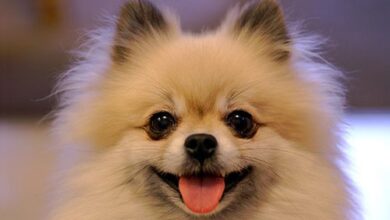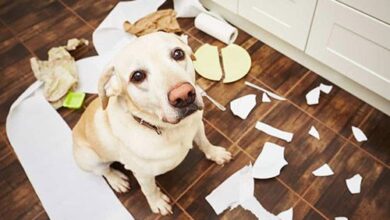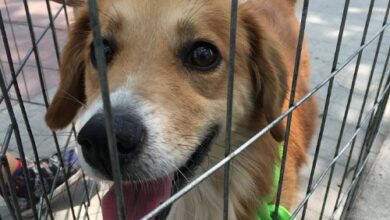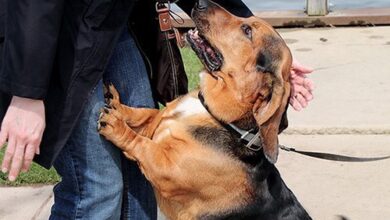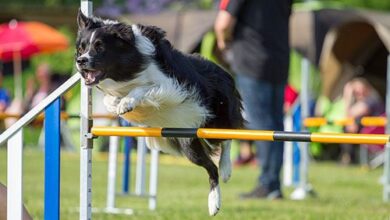Tips on how to potty train your puppy
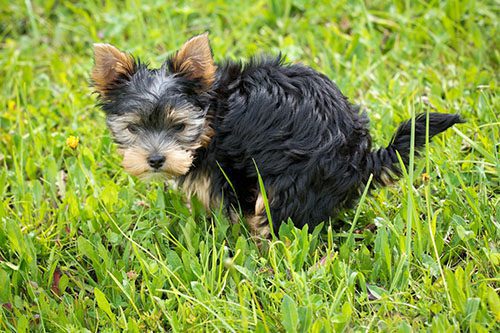

Just like a small child, your puppy will have the urge to urinate all over the house and at any time. One example among others to tell you that teaching your puppy cleanliness is essential for a life of 2, or more, serene. Here are our tips for your puppy to be an ace of cleanliness.
Potty training your puppy is one of the main things to do when he arrives at your home. A puppy urinates quite often, but will not necessarily come to tell you when. It will be up to you to anticipate by scrutinizing its behavior (turning in circles, sniffing out corners that seem appropriate to it, etc.).
A dog with an urgent desire is very easy to spot. Generally, it tends to turn in circles and sniff the ground. This is the harbinger of a pressing desire. It will therefore be necessary to take him out and teach him cleanliness, this is part of the education of the puppy. Don’t panic, you can learn it in just 3 weeks, but you will have to get involved a little and show unfailing patience.
As always, learning takes patience and consistency. When it comes to urinating, your puppy will mainly want:
- When he woke up
- After each meal
- After a game
- Every 2 hours for the first few weeks, once or twice at night.
- Do not hesitate to reward your puppy. Not necessarily by a treat that could promote its overweight, but by a caress, a mark of affection. So that learning to urinate ends before 4 months. But if your pup can’t hold it together at night, don’t panic. This is quite normal and there is no point in reprimanding him.
Start learning very quickly
Potty training should be done as soon as the puppy comes home. If necessary, take him to your garden or to the street on a leash. You have to take him out every hour (yes… his bladder is small!), especially when he wakes up. Above all, it is necessary to delimit a very precise space for it in your home. This will allow him to get used to your absence and facilitate his toilet training.
Make him understand with a keyword or a short expression, what you expect from him, such as “Pee” or “Needs”. Repeat it and be patient until your pup does his little thing. It may take time, but most importantly remember to reward it at the end.
If you don’t take your puppy out for more than 10 hours and he urinates at your home? You’ll just have to blame yourself. For the rest, a puppy remains a very small one and it is important to teach him cleanliness with patience, wisdom and pedagogy. Accidents happen, especially at this age. If this happens, don’t scold your puppy. Don’t punish him. Do not put his muzzle in his urine. This will only have the effect of making your puppy fearful and subject, therefore, to start again out of anxiety. He will not hesitate to hide to relieve himself and will be more afraid of your reaction.
If an accident happens, be sure to clean the floor without your puppy in the room. He could take it as a game and start over. Be sure to neutralize the smell. After a week or two, your dog will begin to understand and will wave to warn you of an urge.
For the rest, as mentioned above, do not hesitate to praise your pup every time he urinates outside. By doing so, you speed up learning and reduce the risk of accidents.
Learning in a dog
If a puppy learns from an early age, you may be adopting an adult dog that suffers from uncleanliness. You will have to teach him how to behave again. It won’t be an easy task. The origin of this behavior can be found in several explanations:
- A bad learning
- There has been an imbalance in the relationship between master and dog. For example, in the absence of the master, the dog had the opportunity to climb on the bed, the sofa… This behavior may also have been introduced by you during the life of your dog. You will have to correct him by offering him a basket and by establishing, for example, a prohibited room in your home.
- Anxiety. This may be due to your absence. Anxiety is characterized by loose stools or the multiplication of diarrhea. The dog is not anxious on its own. It comes from your attitude and your habits.
- Disease. Uncleanliness can be caused by health problems. In this case, go see your veterinarian.
For an adult dog, it is ultimately important to get back to the basics of toilet training. Take him out, congratulate him, don’t scold him, and minimize his anxieties and fears. In this way, you will manage to restore the situation.
In conclusion
Puppy cleanliness is achieved with patience, routine and affection. Your puppy (or dog) needs to get used to it slowly but surely. Do not rush it and wait patiently for your dog to hold back before urinating outside. In the event of an accident, take 2 steps back and increase the number of exits again. You don’t have to skip the steps.


